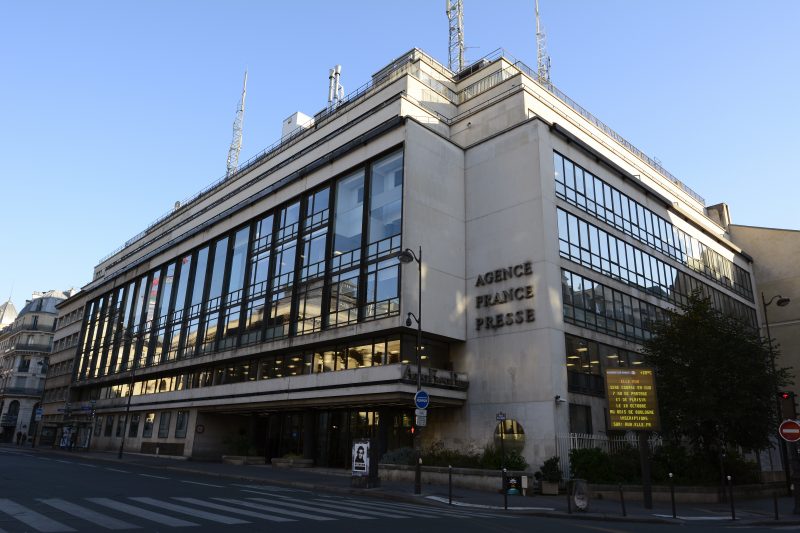AFP extends its Facebook fact-checking into Arabic
Agence France-Presse’s Arabic fact-checking teams based in Beirut will work with AFP staff covering North Africa and the Middle East, where AFP is the leading international news agency in Arabic (BERTRAND GUAY)
Paris (AFP) – Agence France-Presse is extending its fact-checking deal with Facebook to counter fake news in Arabic, it said Wednesday.
The new contract means that AFP, one of the world’s big three news agencies, will extend its worldwide network of fact-checkers — which is already up and running across 16 countries in English, French, Spanish and Portuguese.
The Arabic fact-checking teams based in Beirut will work with AFP staff covering North Africa and the Middle East, where AFP is the leading international news agency in Arabic.
They will verify and debunk fake news being spread online, with their articles published on AFP’s Fact Check blog and then flagged up by Facebook to its users.
AFP’s global news director Phil Chetwynd said the ongoing yellow vests protests in France had shown once again how disinformation can be shared to millions through Facebook groups, “some of whom have a greater reach than some traditional media”.
“Information verification is at the heart of AFP’s mission and its expertise and is something that our clients benefit from daily,” he added.
Survey after survey “shows that the confidence in news has never been as low as it is today,” Chetwynd said.
– ‘Culture of fact-checking’ –
“To contend with fake news we have to find new ways of presenting news… We cannot just report what someone important has said but we have to ask, ‘Is that correct?’
“We want to create a culture of fact checking” to counter the climate of distrust fostered by fake news, Chetwynd added.
The new deal with Facebook includes verification of images, an area in which AFP has particular expertise.
Chetwynd insisted that the agency is “fully independent” in what posts it chooses to investigate, not just the Facebook posts flagged by the platform.
Facebook has come in for heavy criticism for not doing enough to stop the spread of fake news.
Nashwa Aly, its head of policy for the Middle East and North Africa, said they “recognise the implications of false news on Facebook and we are committed to doing a better job to fight it.
“This is a responsibility that we take very seriously,” she said, adding that more than 181 million people use the network across the region every month.
AFP — whose fact checks are used by Facebook in more countries than any other news organisation — is the first to do so in the Arab world.
Facebook launched its fact-checking programme in December 2016 and it now covers 17 languages.
Disclaimer: This story is published from a syndicated feed. Siliconeer does not assume any liability for the above story. Validity of the above story is for 7 Days from original date of publishing. Content copyright AFP.


